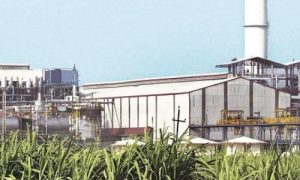Guaranteeing sugarcane producer prices will stabilise troubled sector

Kenya’s sugarcane industry is experiencing a contradictory situation, where despite producing enough sugar to meet local demands, farmers are frustrated with low producer prices due to market surplus. To ensure sustainability, the Agriculture and Food Authority (AFA) should regulate minimum sugarcane producer prices, promote exports, and protect against unfair imports. Sugar companies can also diversify into by-products like industrial alcohol and molasses. Kenya has a successful sugar industry precedent in the 1970s, and reviving past policies can support food security and motivate farmers.
Sugarcane news emanating from western Kenya last week was a contradictory narrative of both success and frustration.
Success because after many years, Kenya was indeed producing enough sugar above local demands. Frustration because producer prices for delivered cane were below production costs, causing farmers to threaten boycotts. Sugar overproduction has created a market surplus, resulting in depressed producer prices.
Whether due to good weather, sufficient use of affordable fertilisers, or the ongoing sugar sector reforms, it was a positive indication that a key crop sub-sector is making a turnaround, an achievement that should be ringfenced with enabling policies to ensure sustainability.
Farmers should be cushioned from supply and demand dynamics to protect crop production economics.
Rural farmers are simple economic actors needing assurances that they can cover basic production costs and make some extra cash for routine household expenses.
Agriculture and Food Authority (AFA), the crop sector regulator, should borrow a leaf out of the Dairy Board’s regulatory initiatives, which have ensured a fair balance of farmers, processors and consumers interests.
The Dairy Board routinely “recommends” minimum milk producer prices while protecting the sector from unfair imports. Blind adherence to regional trade protocols often disadvantages Kenyan farmers due to less favourable climate and ecological systems.
AFA has to determine and “recommend” minimum sugarcane producer prices, while promoting exports of surplus sugar and guarding against sugar import cartels. Where necessary surplus sugar can be purchased as buffer strategic stocks. This is a policy principle that should apply to all seasonal food-security-sensitive cash crops, which include maize, rice and wheat.
Sugar companies should go beyond sugar production and engage in by-products like industrial alcohol and distribution of molasses to dairy farmers. It is not like the sugar sector is starting anew. For, indeed, a very successful sugar industry existed in the 1970s when not a single ton of sugar was imported and when sugar farmers in western Kenya and Coast were a prosperous lot.
In early 1980s we used to blend petrol with 10 percent alcohol (E10 gasohol) to reduce national oil import bill. This stopped when bulk industrial alcohol exports fetched more dollars than the country saved on oil imports.
We cannot continue verbalising food security in international forums if we are not ready to support and motivate our farmers to sustain food production. Templates of previous successful food production successes exist here in Kenya.
All we need is to dust old files and ensure that professional stewardship and governance in all agriculture and livestock sectors are recreated.














